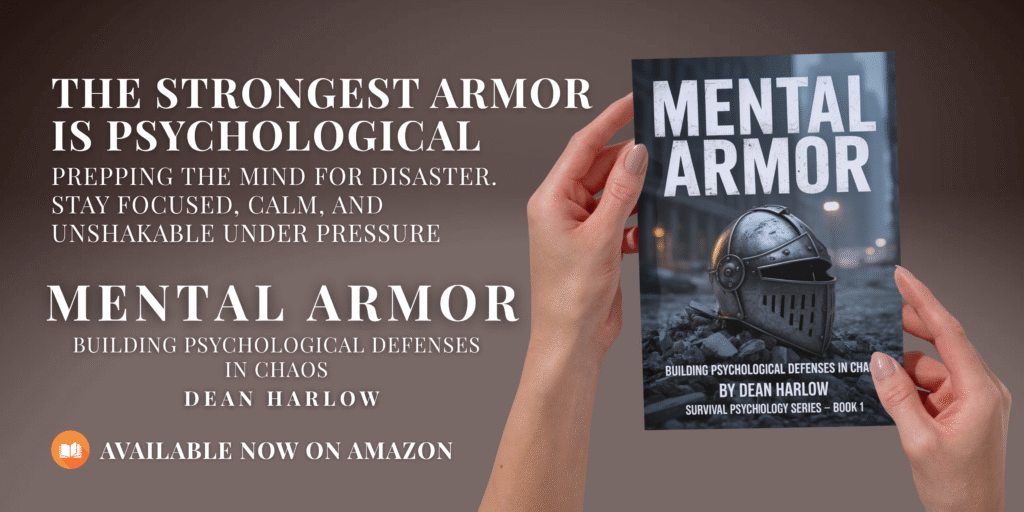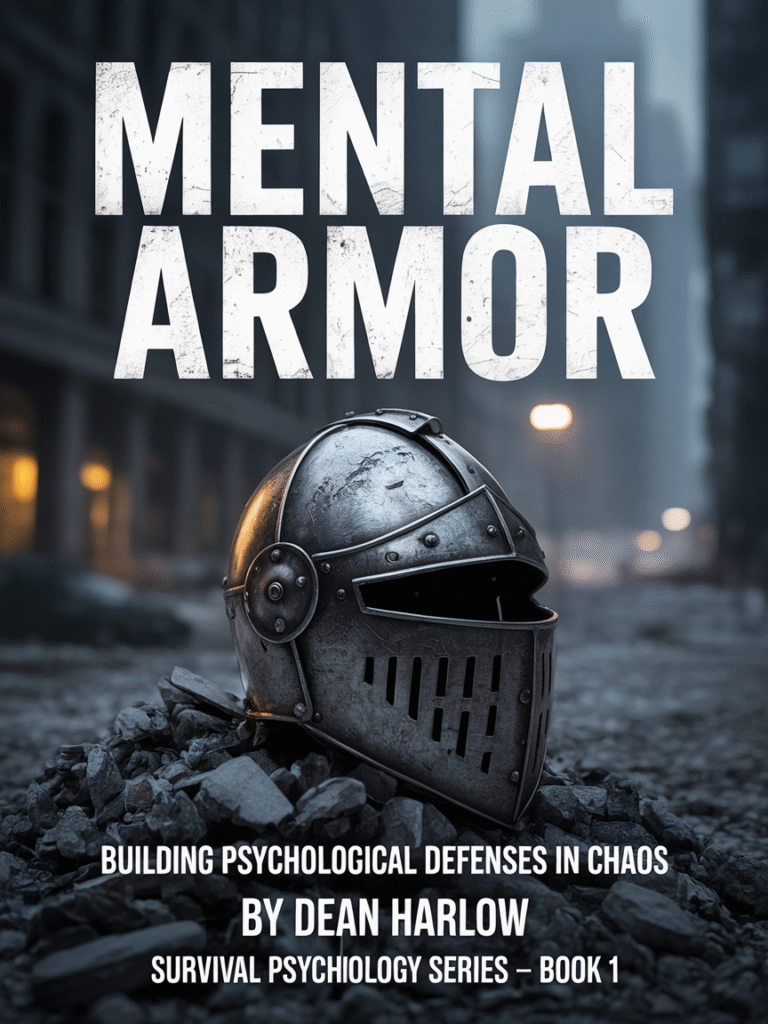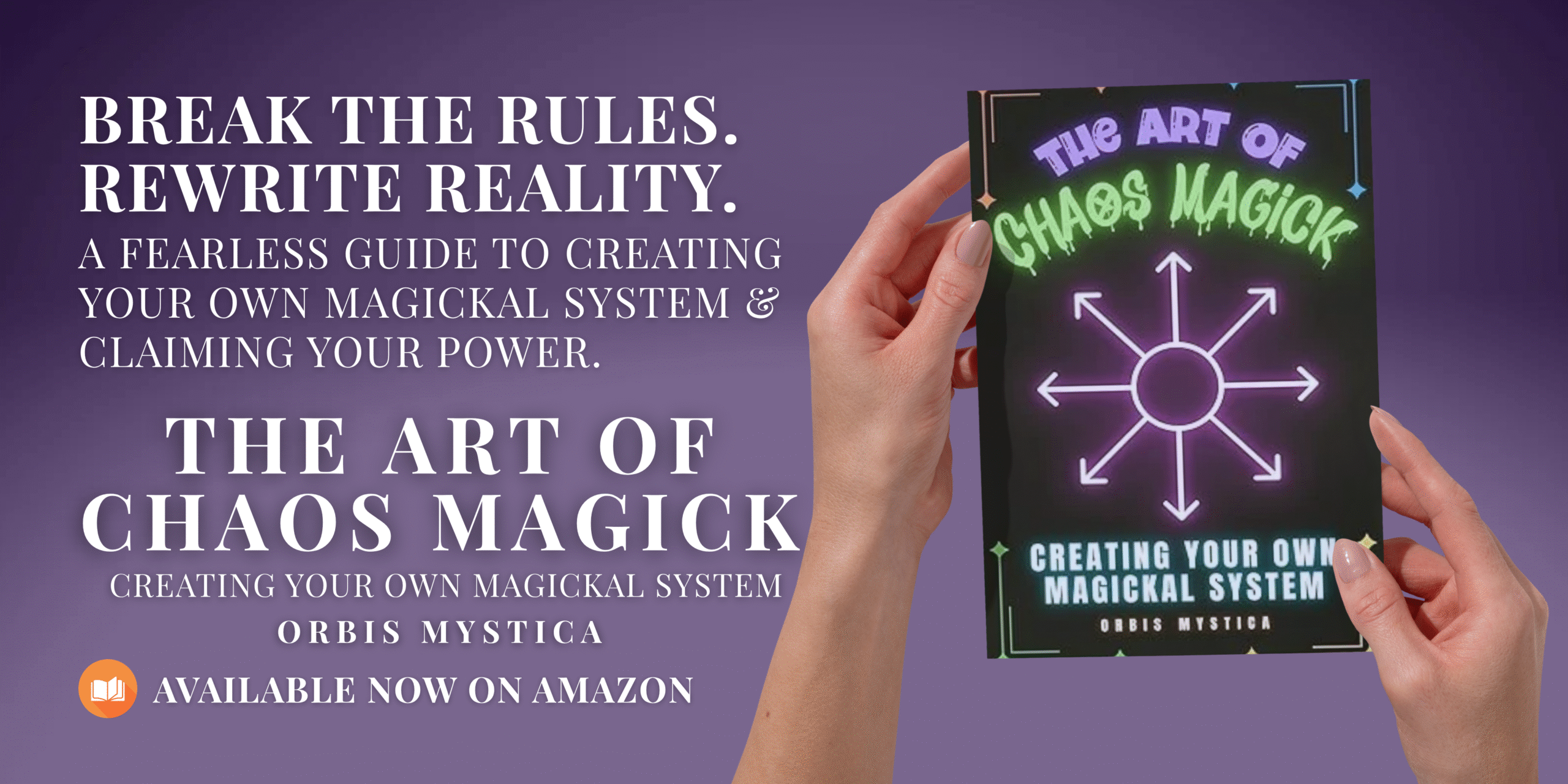
Survival isn’t about stockpiling gear or memorizing checklists. It’s about building the one thing that determines whether you break or endure when the world tilts off its axis: your mind.
In Mental Armor: Building Psychological Defenses in Chaos, Dean Harlow strips away the clichés of “positive thinking” and offers something far more practical—and far more essential. This first book in his Survival Psychology Series isn’t a call to optimism. It’s a manual for developing the kind of mental resilience that holds steady under fire, in blackout zones, and amid social collapse.
This isn’t theory. It’s tactical psychology for chaotic environments, field-tested by those who can’t afford to flinch.

The Hidden Battlefield
The opening chapter sets the tone: the first collapse in any disaster isn’t physical infrastructure—it’s human perception. Panic, groupthink, emotional contagion, and fear loops are the real weapons of mass destruction.
Harlow identifies four key layers of psychological defense:
- Cognitive Armor: Filters noise, propaganda, and emotional distortion.
- Emotional Armor: Blocks fear, guilt, and despair from hijacking your actions.
- Behavioral Armor: Maintains discipline and forward momentum under pressure.
- Strategic Armor: Protects long-term decision-making and morale.
This layered system is not theoretical—it’s practical. And it begins with the Collapse Filter.
The Collapse Filter: Cutting Through Cognitive Noise
When disaster strikes, the untrained mind becomes its own worst enemy. Sensory overload and fear loops create tunnel vision, leading to paralysis or fatal mistakes.
Harlow introduces a four-step mental filtration process designed to keep your head clear:
- Fact Check – Strip away emotion. What’s verifiably happening?
- Source Check – Where is this information coming from?
- Impact Check – Does this require action right now?
- Control Check – Can I influence this? If not, disengage.
Through drills like the Cold Clarity Exercise and Red Teaming Your Perceptions, readers learn how to override panic reflexes and maintain clarity even in the middle of chaos.
Building a Resilient Mental Core
The second section focuses on developing what Harlow calls the Mental Core: Discipline, Focus, and Stillness.
- Discipline: The ability to act on purpose, not mood.
- Focus: The art of filtering noise and locking attention on what matters.
- Stillness: Staying unmoved by external volatility.
You’ll find actionable exercises like:
- Micro-Stress Drills to train stress-resilience.
- Anchor Rituals for daily mental conditioning.
- Response Delay Protocols that give you an edge in high-stakes scenarios.
This isn’t about suppressing emotion. It’s about owning it—and using it strategically.
Emotional Minimalism: Conserve Energy, Eliminate Leaks
In prolonged crises, wasted emotional energy is lethal. Mental Armor teaches emotional triage: how to decide what feelings deserve your attention and which are dead weight.
You’ll learn tools like:
- Emotional Fasting: Breaking addictive emotional patterns.
- Energy Inventory Drills: Identifying and sealing leaks in your psychological system.
- Tactical Stoicism: Maintaining calm without becoming cold.
This section emphasizes that clarity isn’t about ignoring reality—it’s about engaging with it from a position of strength.
Situational Awareness Without Overwhelm
Hypervigilance burns people out. Complacency blinds them. The book’s middle chapters train you to hold the middle ground—alert, but calm.
Harlow adapts tactical concepts like Cooper’s Color Codes for mental states and introduces sensory control drills that teach you to filter critical signals from noise.
Key takeaway: It’s not about seeing everything. It’s about noticing what matters—and staying functional while you do.
Immunity to Psychological Warfare
Chaos breeds psychological manipulation. Governments, mobs, and media narratives all fight for control of perception.
Harlow arms readers against these invisible attacks with:
- Groupthink Immunity: How to stand apart when collective hysteria spikes.
- Morale Firewalls: Techniques to block demoralizing inputs.
- Narrative Control: Crafting your own internal mission to resist external scripts.
This section isn’t paranoia—it’s situational clarity in a world where information itself has become a battlefield.
Stress Immunity and Crisis Rehearsals
You don’t rise to the occasion—you fall to your level of preparation.
Harlow emphasizes Controlled Exposure to stress, a process of micro-dosing discomfort to inoculate your nervous system against the shock of real crises.
You’ll also learn:
- Crisis Personas: Pre-programmed mental operating systems for high-stakes environments.
- Scenario Scripting: Visualizing responses so they’re automatic under pressure.
- Decision Drills: Practicing cognitive pivoting to avoid rigidity in dynamic situations.
Identity as the Ultimate Defense
The book culminates in one truth: gear can fail, plans can crumble, but a fortified identity carries you through.
Harlow guides you to build Identity Anchors based on values and purpose, not outcomes. With drills like the Identity Lockdown and Crisis Statements, you train yourself to remain unshaken—even when everything else fractures.
Hold the Line
Mental Armor: Building Psychological Defenses in Chaos isn’t just a book; it’s a psychological training regimen for people who refuse to let fear or confusion dictate their actions.
Dean Harlow doesn’t offer comfort. He offers clarity, strategy, and the tools to make your mind your strongest asset when everything else falls apart.
In chaos, you are your own last line of defense. This book shows you how to strengthen it.
Available Now
📖 Mental Armor: Building Psychological Defenses in Chaos
✍️ By Dean Harlow
🔗 Read it on Amazon




